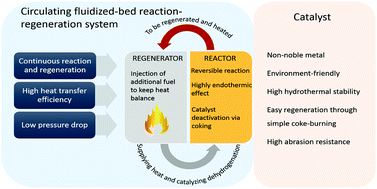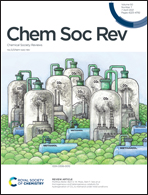Dehydrogenation of light alkanes to mono-olefins
Abstract
In the past several decades, light alkane dehydrogenation to mono-olefins, especially propane dehydrogenation to propylene has gained widespread attention and much development in the field of research and commercial application. Under suitable conditions, the supported Pt–Sn and CrOx catalysts widely used in industry exhibit satisfactory dehydrogenation activity and selectivity. However, the high cost of Pt and the potential environmental problems of CrOx have driven researchers to improve the coking and sintering resistance of Pt catalysts, and to find new non-noble metal and environment-friendly catalysts. As for the development of the reactor, it should be noted that low operation pressure is beneficial for improving the single-pass conversion, decreasing the amount of unconverted alkane recycled back to the reactor, and reducing the energy consumption of the whole process. Therefore, the research direction of reactor improvement is towards reducing the pressure drop. This review is aimed at introducing the characteristics of the dehydrogenation reaction, the progress made in the development of catalysts and reactors, and a new understanding of reaction mechanism as well as its guiding role in the development of catalyst and reactor.

- This article is part of the themed collection: Recent Advances in Alkane Conversion


 Please wait while we load your content...
Please wait while we load your content...